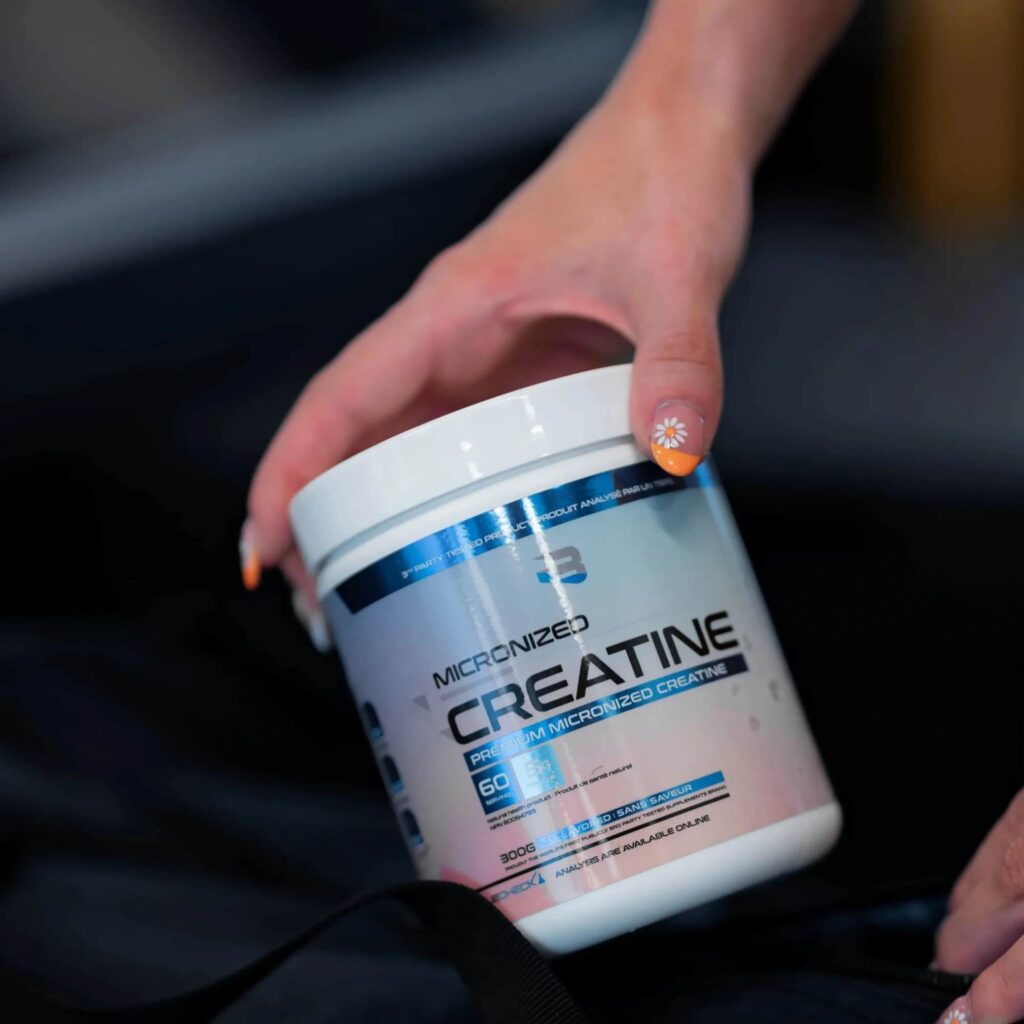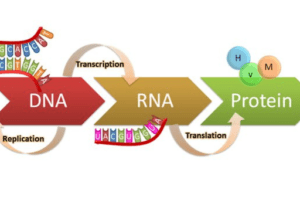In the world of sports and fitness, players are continuously looking for ways to improve their performance and acquire a competitive advantage. For runners, peak performance requires a careful mix of endurance, speed, and strength. While traditional training methods are important, athletes who want to improve their performance frequently look into nutritional supplements. Creatine is one of the most common options. Creatine is well-known for its benefits in strength and power sports, but its potential benefits for runners are now being investigated. But is creatine beneficial for runners?
This article dives into the science, benefits, and potential drawbacks of creatine supplementation for runners, providing a thorough guide to assist athletes make informed decisions about adopting this supplement into their routine.
What is Creatine?
Creatine is a naturally occurring chemical that the human body synthesizes and is present in various diets in trace amounts. Energy production requires creatine, which is mostly stored in muscles. This is especially true during short yet intense exercise bursts. Its constituent amino acids are methionine, glycine, and arginine. The body converts phosphocreatine and creatine to adenosine triphosphate (ATP), the primary energy source for cells.
How Does Creatine Work?

ATP is the energy source that muscles use during high-intensity exercise. ATP reserves, however, are finite and quickly run out. Long-lasting muscular contractions and improved performance are made possible by creatine phosphate, which aids in the regeneration of ATP from adenosine diphosphate (ADP). This method is especially helpful for exercises like weightlifting and sprinting that call for quick bursts of energy and force.
Creatine and Running: Bridging the Gap
Traditional Views on Creatine
In the past, creatine has been linked to anaerobic exercises, where quick, powerful bursts of energy are essential. As a result, creatine supplementation has frequently been disregarded by endurance athletes like runners in favor of electrolytes and carbs. Newer studies, however, point to the possibility that creatine has advantages beyond its conventional uses and could improve endurance sports performance.
Creatine’s Potential Benefits for Runners
- Enhanced Recuperation: One of the main advantages of using creatine supplements is that they can help with recovery. Running causes considerable oxidative stress and muscle injury, especially over extended distances. It has been demonstrated that creatine speeds up muscle recovery and lowers inflammation in the muscles, enabling runners to train more often and efficiently.
- Greater Strength and Muscle Mass: Moderately increased muscle mass can be advantageous for endurance runners, while excessive muscular mass might be detrimental. Supplementing with creatine can assist increase muscle power and strength, which can lead to more efficient and effective running, particularly while running up hills and sprinting.
- Increased Glycogen Storage: For endurance athletes, glycogen is an essential energy source. According to studies, creatine helps muscles store more glycogen, which makes it easier for muscles to use as an energy source when working for extended periods. This can be especially helpful while training for a marathon or long-distance run.
- Hydration and Thermoregulation: Osmotic qualities in creatine cause water to be drawn into muscle cells. This may lessen the chance of heat-related problems by assisting in maintaining water levels and enhancing thermoregulation during extended activity.
- Mental Fatigue and Cognitive Function: Running, especially long-distance running, requires mental as well as physical endurance. Supplementing with creatine may improve cognitive function by lowering mental tiredness and improving focus and decision-making during extended tasks, according to some studies.
Practical Considerations for Runners

-
Dosage and Timing
It’s important for runners who are thinking about taking creatine supplements to know the right dosage and timing. The normal regimen calls for a loading phase that lasts four doses of 20 grams per day for five to seven days, and a maintenance phase that lasts three to five grams per day. To prevent any gastrointestinal distress, other athletes, however, would rather take a lower, consistent dose without a loading phase.
- Loading Phase: The muscles’ levels of creatine are quickly raised during this phase, which may result in more immediate and observable advantages. However, some people may experience stomach distress during this phase.
- Phase of Maintenance: Following the loading phase, the muscles’ increased levels of creatine are sustained with a decreased daily dosage. For the duration of the supplementation period, this phase should be maintained since it is crucial for long-term benefits.
-
Hydration and Diet
Because of its osmotic characteristics, creatine requires enough water. To avoid dehydration, runners should make sure they consume enough water, especially during strenuous training sessions and competitions. It is advantageous to take creatine with a post-workout meal or snack because doing so can improve its absorption and effectiveness when combined with carbs.
-
Individual Variability
Individuals can react to creatine supplementation in a variety of ways. The effectiveness of supplements can be influenced by variables like nutrition, training status, and baseline creatine levels. Before adding creatine to their usual training routine, runners should think about conducting controlled experiments to gauge their response.
Integrating Creatine into a Runner’s Training Plan

Periodization and Phases
Including creatine in a workout plan necessitates careful periodization. During the off-season or base-building phase, runners might experiment with creatine to see how it affects strength and recovery. Creatine can be cycled in and out as training intensity increases, depending on individual response and training goals.
- Base Phase: Runners can take creatine to improve their strength and speed up their recovery during the first phase of training. This stage enables customization and assessment of each respondent’s unique response.
- Phase of Intensity: Creatine can help with strength training and high-intensity interval training (HIIT) as training intensity increases. Determining its efficacy will require tracking recovery and performance indicators.
- Taper Phase: Depending on performance objectives and weight control, creatine supplementation can be modified in the weeks preceding an event. To prevent any water retention during the race, some runners could decide to taper off on creatine.
Combining with Other Supplements
Supplementing with creatine can work in concert with other substances to improve performance overall. For example, combining creatine with beta-alanine can lower fatigue and increase endurance greatly because it buffers the acid in the muscles, delaying the development of exhaustion during high-intensity exercises. This combination can assist sustain performance levels during extended periods of hard activity, which is especially advantageous for runners who participate in interval training or hill sprints.
Branch-chain amino acids (BCAAs) and creatine are another powerful combo. Leucine, isoleucine, and valine, together known as BCAAs, are necessary amino acids that are vital to the synthesis and repair of muscle protein. After long runs or intense training sessions, BCAAs and creatine can aid lessen muscle soreness and speed up recovery. This combination increases overall training efficiency and efficacy by ensuring that muscles are healed and prepared for the following workout.
Additionally, creatine can be mixed with other supplements, such as caffeine, to improve performance. Caffeine is known for its ability to boost alertness while decreasing the impression of exertion, making it a popular choice among endurance athletes. When combined with creatine, coffee can provide a double boost, increasing both mental and physical performance during long-distance runs or races.
Moreover, runners might think about combining creatine with electrolytes, particularly for extended runs in hot and muggy weather. Dehydration can be avoided and fluid balance maintained with the aid of electrolytes like magnesium, potassium, and salt. This is important for long-term endurance performance. Long-term runners can sustain their speed and performance by combining creatine with an electrolyte-rich drink to provide proper hydration and prevent cramps.
Conclusion
Although it has historically been associated with strength and power athletes, creatine is beginning to be recognized for its potential advantages for runners. Enhancing muscle strength and cognitive function, as well as improving recovery and glycogen storage, are just a few of the benefits that creatine provides and can help runners perform better. Individual differences and possible adverse consequences, however, call for cautious thought and testing. To get the most out of creatine supplementation, runners should take a calculated approach, include it in their training schedule, and track their results. In the end, creatine shows potential as a useful tool in runners’ pursuit of peak performance, even though it is not a one-size-fits-all answer.
FAQ’s
Can creatine benefit long-distance runners?
Yes, creatine can help long-distance runners recover faster, store more glycogen, and increase muscle strength. These advantages can lead to increased endurance, less muscular fatigue, and greater overall performance on lengthy runs. Individual responses may differ, so it’s best to try with professional assistance.
Is it safe to combine creatine with other supplements?
Yes, mixing creatine with additional supplements such as beta-alanine, BCAAs, and electrolytes can help improve performance and recovery. These combinations can have synergistic effects, such as increased endurance, less fatigue, and improved hydration. To ensure the safety of any supplement program, always visit a sports nutritionist or healthcare expert first.
Will creatine cause weight gain, and will this affect my running?
The main way that creatine can make you gain weight is by making your muscles retain more water. Although this might be advantageous for building muscle strength, endurance runners might find it concerning. You can control this effect and make sure it doesn’t impair your running performance by keeping an eye on your weight and modifying the dosage.







